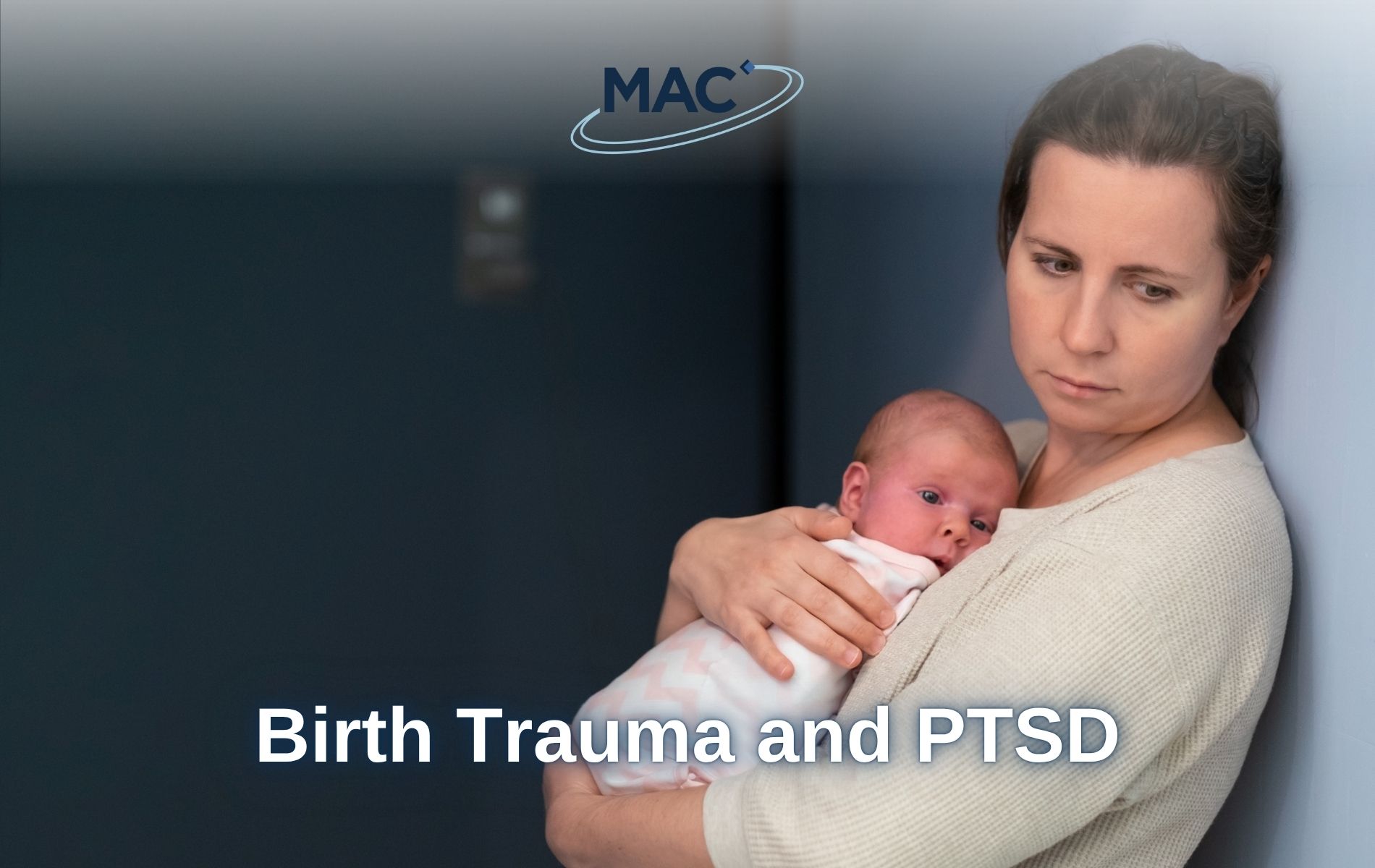Childbirth is mostly thought of as a joyful experience, but for many, it can be deeply traumatic. Birth trauma refers to the physical or emotional distress experienced during or after childbirth.
When this trauma leads to persistent psychological symptoms, it can develop into post-traumatic stress disorder (PTSD), a serious a complex mental health condition triggered by experiencing, witnessing or sometimes even hearing about a traumatic event.
Symptoms can include flashbacks, nightmares, severe anxiety, and uncontrollable thoughts about the event. It’s estimated that around 1 in 10 people in the UK will experience PTSD at some point in their lives1.
What Is Birth Trauma?
Birth trauma can result from a variety of experiences, including emergency interventions, loss of control during labour, inadequate pain relief, or feeling ignored by medical staff. Even when the baby is born healthy, the mother may feel overwhelmed, frightened, or violated. Approximately one in three people found at least one aspect of giving birth traumatic2.
PTSD After Childbirth
PTSD following childbirth, sometimes called postnatal PTSD, is more than just a traumatic memory and impacts up 1 in 10 women after giving birth3. It involves a range of symptoms that can severely impact daily life, including:
- Flashbacks or nightmares about the birth
- Avoidance of reminders, such as hospitals or even the baby
- Hypervigilance, anxiety, or panic attacks
- Emotional numbness or detachment
- Negative beliefs about oneself or the world
Partners and witnesses of the birth can also be affected, experiencing secondary trauma or their own PTSD symptoms.
The Emotional Toll
The psychological effects of birth trauma can impact every aspect of life. It may interfere with bonding with the baby, contribute to postpartum depression – a condition which impacts 1 in 10 new mothers4 – and strain relationships. Some individuals feel guilt or shame for not having the “perfect” birth, while others may feel anger toward the medical system or themselves.
Importantly, trauma is subjective. Two people can experience the same birth, but only one may perceive it as traumatic, highlighting the need for compassionate and individualised care during and after childbirth.
Treatment and Recovery
PTSD after childbirth, however, can be treatable; some therapies include:
- Trauma-focused cognitive behavioural therapy (CBT)
- Eye Movement Desensitisation and Reprocessing (EMDR)
- Support groups and peer counselling
- Medication, when appropriate
Despite this, 75% of women with maternal mental health conditions remain untreated, often due to stigma or lack of awareness5. Healthcare providers should be trained to recognise the signs of birth trauma and offer appropriate referrals.
Raising awareness about birth trauma and PTSD is essential. By validating these experiences and providing support, we can help parents heal and thrive.
Improving Quality of Life for People Living with PTSD
Here at MAC Clinical Research, we are passionate about improving quality of life for those experiencing poor mental health, including those living with PTSD, through groundbreaking clinical trials.
To learn more about our current trials or register your interest in our upcoming PTSD research, visit our Current Trials webpage.
If eligible for a clinical trial, you may receive financial compensation for taking part plus a full health check-up and reasonable travel expenses.
1 PTSD UK – Post Traumatic Stress Disorder stats and figures
2 All-Party Parliamentary Group – Birth Trauma Report
3 Frontiers in Psychology – Childbirth Induced Posttraumatic Stress Syndrome: A Systematic Review of Prevalence and Risk Factors
4 NHS – Overview – Postnatal depression
5 Birth Trauma – Psychological Birth Trauma




